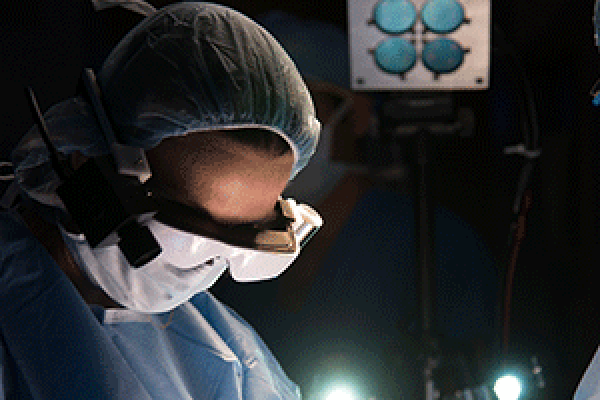WUSTL student helps FDA roll out campaign to curb youth tobacco use
Daniel Giuffra, a freshman and Annika Rodriguez Scholar at Washington University in St. Louis, discussed his anti-smoking work as part of a recent U.S. Food and Drug Administration news conference announcing a new effort to curb tobacco use among at-risk youth.
Sam Fox School faculty win national education honors
Bruce Lindsey, dean of architecture, and Peter MacKeith, associate professor of architecture, both have won important honors in the 2013-14 Architectural Education Awards.
Students win international University Physics Competition
A WUSTL team learned last month that they had won the Gold Medal for their analysis of a problem during the international University Physics Competition, held in November. Using the principles of physics, they predicted characteristics of an animal on an extraterrestrial planet.
10th Annual Art Show
The School of Medicine’s 10th Annual Art Show, which features works by students, faculty and staff, is in the Farrell Learning and Teaching Center atrium through Friday, Feb. 21.
Smoking cessation may improve mental health
Although many health professionals who treat people with psychiatric problems overlook their patients’ smoking habits, new research at the School of Medicine shows that people who struggle with mood problems or addiction can safely quit smoking and that kicking the habit is associated with improved mental health.
Nanoparticles treat muscular dystrophy in mice
Researchers at the School of Medicine have demonstrated a new approach to treating muscular dystrophy. Mice with a form of the disease showed improved strength and heart function when treated with nanoparticles loaded with rapamycin, an immunosuppressive drug recently found to improve recycling of cellular waste.
New guides developed to help communities address tobacco issues
In conjunction with the 50th anniversary of the surgeon general’s landmark report on smoking, the Brown School’s Center for Public Health Systems Science, in partnership with the Tobacco Control Legal Consortium, has published two new tobacco control guides — Policy Strategies and Pricing Policy — that aim to give state and local communities the guidance and resources needed to move tobacco-control policies forward.
Special glasses help surgeons ‘see’ cancer
High-tech glasses developed at the School of Medicine may help surgeons visualize cancer cells, which glow blue when viewed through the eyewear. The wearable technology was used during surgery for the first time Feb. 10 at Siteman Cancer Center.
New SCOTUS brief argues Hobby Lobby’s request is unconstitutional
The popular arts and crafts store Hobby Lobby is seeking a religious exemption from covering certain forms of contraception it would be required to provide under the contraception mandate of the Affordable Care Act. The case is headed to the Supreme Court, with oral arguments set to begin this spring. “Granting the exemption would shift the cost of accommodating Hobby Lobby’s religious exercise to employees who do not share its beliefs,” argues Elizabeth Sepper, JD, associate professor of law at Washington University in St. Louis. “Such cost-shifting violates the Establishment Clause.” Sepper is one of several experts who have authored an amicus curiae brief to the Supreme Court arguing the unconstitutionality of Hobby Lobby’s request.
National Book Award winner Mary Szybist
Incarnadine is a fleshy hue, a blushing, pinkish crimson, akin to salmon or rust or rose, the color of pale sunsets, of angels’ robes, of water stained by blood. But blue is the color that dominates “Incarnadine” (2013), Mary Szybist’s second collection: the blues of bright skies and dark oceans, of pretty dresses and ominous clouds, of feathers and bubbles and bruises long past healing.
View More Stories

